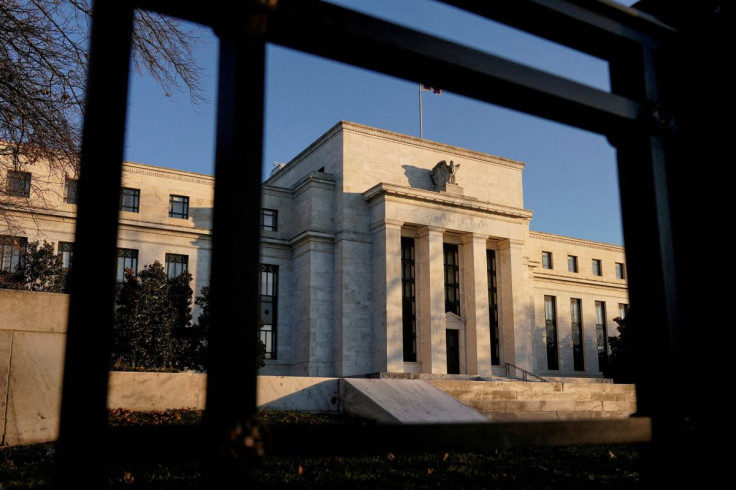Wall St Surges In Broad Rally As Oil Prices Slide; Fed In Focus

Wall Street's main indexes climbed on Tuesday as oil prices extended declines and data showed a softer-than-expected rise in producer prices, with investors remaining focused on the outcome of the Federal Reserve's two-day policy meeting.
Brent crude fell back below $100 a barrel after scaling as much as $139 last week, providing some relief for U.S. stocks that have had a wild ride so far this year on worries about surging inflation and the Fed's moves to combat it. [O/R]
"There's a bit of a respite today, in the sense that oil prices are tumbling and markets are reflexively reacting positively to that," said Todd Lowenstein, chief equity strategist of The Private Bank at Union Bank.
"We look oversold and the move looks extreme in the short run, but they're also proportional to the events that have unfolded before us."
Ten of the 11 major S&P sectors advanced, with technology and consumer discretionary stocks climbing over 2% each. Energy - the standout performer among sectors this year - slid. Chevron Corp tumbled 5.1%.
Megacap growth stocks gained with Microsoft Corp and Amazon.com up 2.2% and 3%, respectively, providing the biggest boost to the S&P 500 and the Nasdaq.
Big banks, which tend to benefit from rising interest rates, rose. JPMorgan Chase & Co advanced 1.4%.
Traders see a 85% chance of a 25 basis point rate hike by the U.S. central bank at the conclusion of its meeting on Wednesday. However, investors will likely watch out for projections showing just how far policymakers think rates will need to rise this year and in 2023 and 2024 to tame inflation.[IRPR]
"They need to normalize interest rates, independent of the war in Ukraine and maybe commodity prices softening, because inflation is becoming sort of entrenched, it's become more broad base now," Lowenstein said.
The Labor Department's report showed producer price index (PPI) for final demand increased 0.8% last month after accelerating 1.2% in January. Economists polled by Reuters had forecast the PPI gaining 0.9%.
At 11:57 a.m. ET, the Dow Jones Industrial Average was up 296.65 points, or 0.90%, at 33,241.89, the S&P 500 was up 51.53 points, or 1.23%, at 4,224.64, and the Nasdaq Composite was up 220.73 points, or 1.75%, at 12,801.95.
Meanwhile, investors also kept a closely tracked a steep jump in daily COVID-19 infections in China, and progress in Ukraine-Russia talks to end their weeks-long conflict.
In the latest hint at compromise, Ukrainian President Volodymyr Zelenskiy said Kyiv was prepared to accept security guarantees that stop short of its long-term objective of the NATO alliance membership, which Moscow opposes.
Delta Air Lines Inc and United Airlines jumped nearly 7.5% each, after the U.S. carriers raised their current-quarter revenue forecasts, even as they trimmed capacity.
The CBOE volatility index, also known as Wall Street's fear gauge, slipped but held above 30 points.
Advancing issues outnumbered decliners by a 1.47-to-1 ratio on the NYSE and by a 1.38-to-1 ratio on the Nasdaq.
The S&P index recorded nine new 52-week highs and seven new lows, while the Nasdaq recorded 16 new highs and 311 new lows.
© Copyright Thomson Reuters 2024. All rights reserved.




















